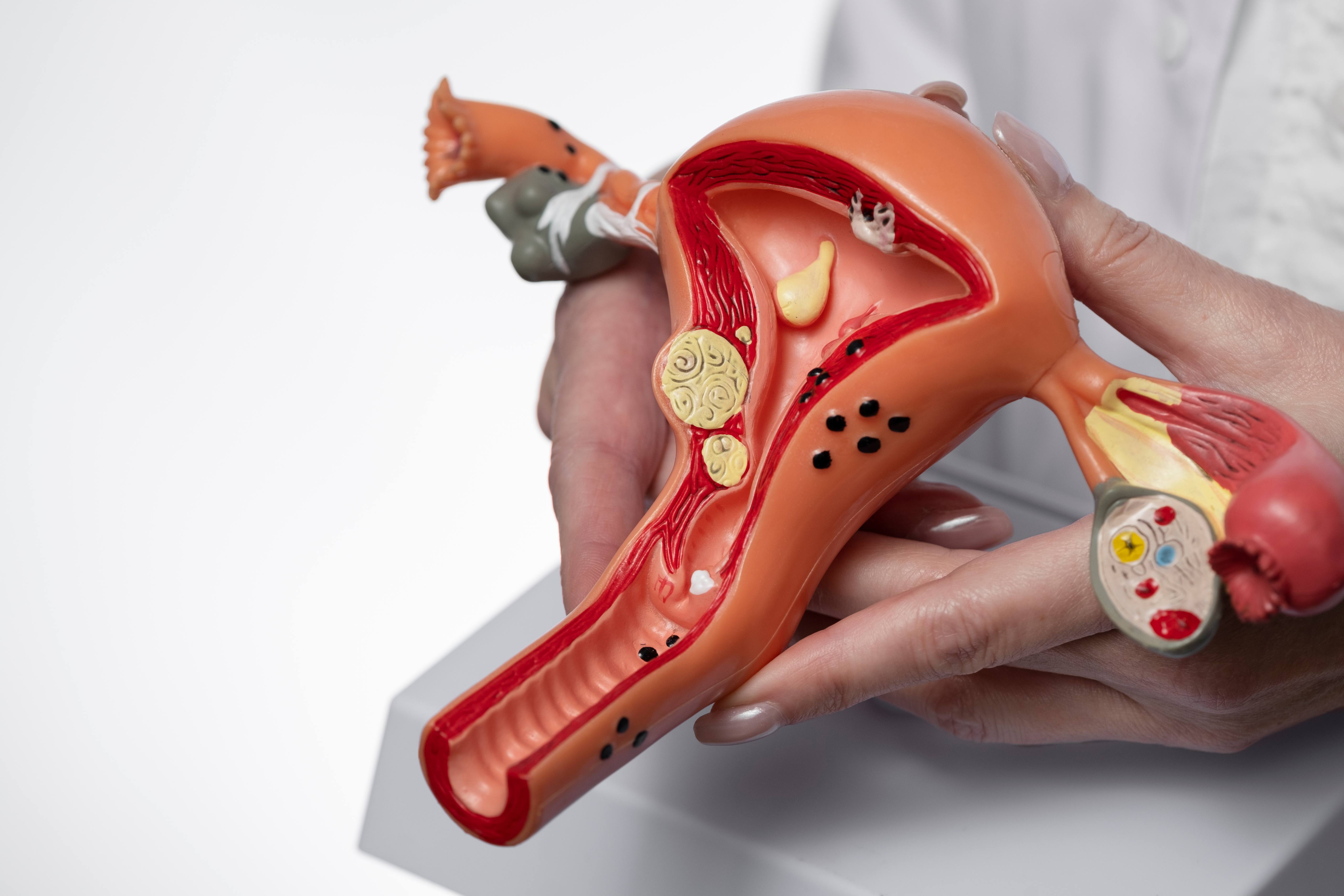Functional cysts: These are the most common type and form as part of the normal menstrual cycle.
Follicular cysts: occur when the egg doesn’t release from its follicle.
Corpus luteum cysts: develop after the egg is released and the follicle doesn't shrink properly.
Dermoid cysts (Teratomas): These are made up of different types of tissue (like hair or skin) and are usually benign. They can grow large and may require surgical removal.
Cystadenomas: These grow from the surface of the ovary and may contain fluid or mucus. Larger cystadenomas can cause pressure or pain and may also need removal.
Endometriomas: Associated with endometriosis, these cysts form when uterine lining tissue grows on the ovaries, leading to pain and sometimes fertility issues.
...


Most ovarian cysts don’t cause symptoms, especially when they are small. However, larger or more complex cysts can lead to:
Pelvic pain or pressure (dull or sharp)
Bloating or a feeling of fullness
Pain during intercourse
Irregular menstrual cycles
Frequent urination or difficulty emptying the bladder
Lower back pain
In rare cases, a cyst can rupture or cause the ovary to twist (torsion), which may lead to sudden, severe pain and require emergency care.
To schedule an appointment call our gynecology office at (240) 252-2140 or request an appointment online.